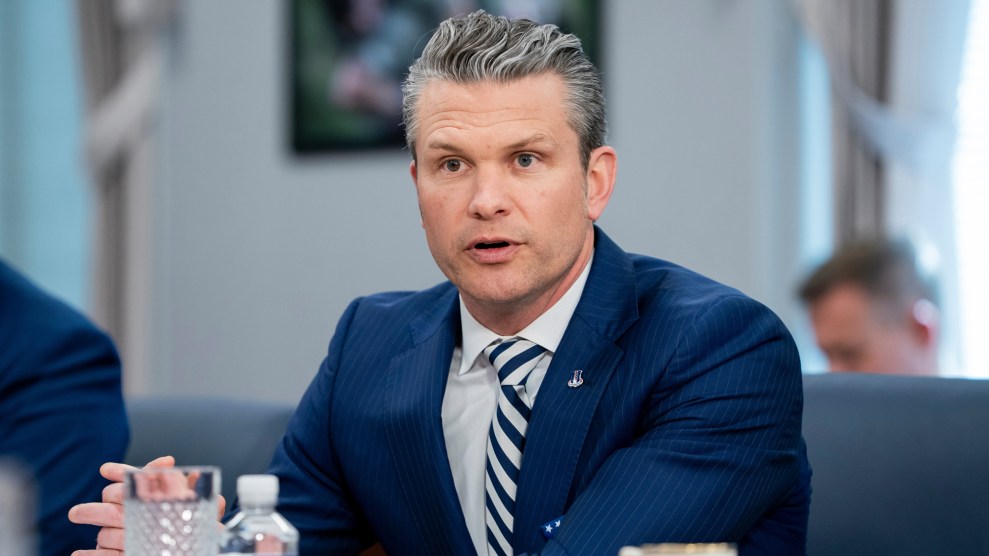
Stefani Reynolds/Pool/CNP/Zuma
For years, concerns have been mounting in the press and among Senate staffers about California Sen. Dianne Feinstein’s cognitive abilities. A report published in the San Francisco Chronicle today—featuring interviews with four US senators, three former Feinstein staffers, and a Democratic congressperson from California—reveals more about the 88-year-old’s potential inability to legislate.
The sources interviewed by the Chronicle said that Feinstein’s deteriorating memory made it impossible for her to do her job without heavily relying on staff. “It’s bad, and it’s getting worse,” one Democratic senator told the Chronicle. The sources recounted instances of Feinstein forgetting recent conversations or failing to recognize people she had known for years. At a memorial address for Port of San Francisco Commissioner Anne Halsted, Feinstein reportedly forgot to mention the woman who had died. When staffers told her that she needed to speak again, she referred to Halsted in the present tense.
Feinstein rose to prominence as mayor of San Francisco after George Moscone’s assassination in 1978. She was elected to the Senate in 1992, and in 2021 became the longest serving senator from California. At 88, she is the oldest member of the Senate. As a member of several committees, including the Judiciary, she also holds quite a bit of power. If Democrats hold onto control of the Senate after the midterms, she will replace the retiring Sen. Patrick Leahy (D-Vt.) as president pro tempore, the third in line for the presidency. Her term is not set to end until 2024.
This is a tragic situation for the senator, who in February lost her husband of more than 40 years. Still, it raises serious questions about the practicality of a Senate with no term or age limits, where staffers may work to keep knowledge of a legislator’s deteriorating mental state hidden from constituents. As the Chronicle notes, the very doggedness that made Feinstein an effective legislator now factors into her refusal to resign. “My biggest concern,” one staffer said, “is that it’s a real disservice to the people of California.”


















